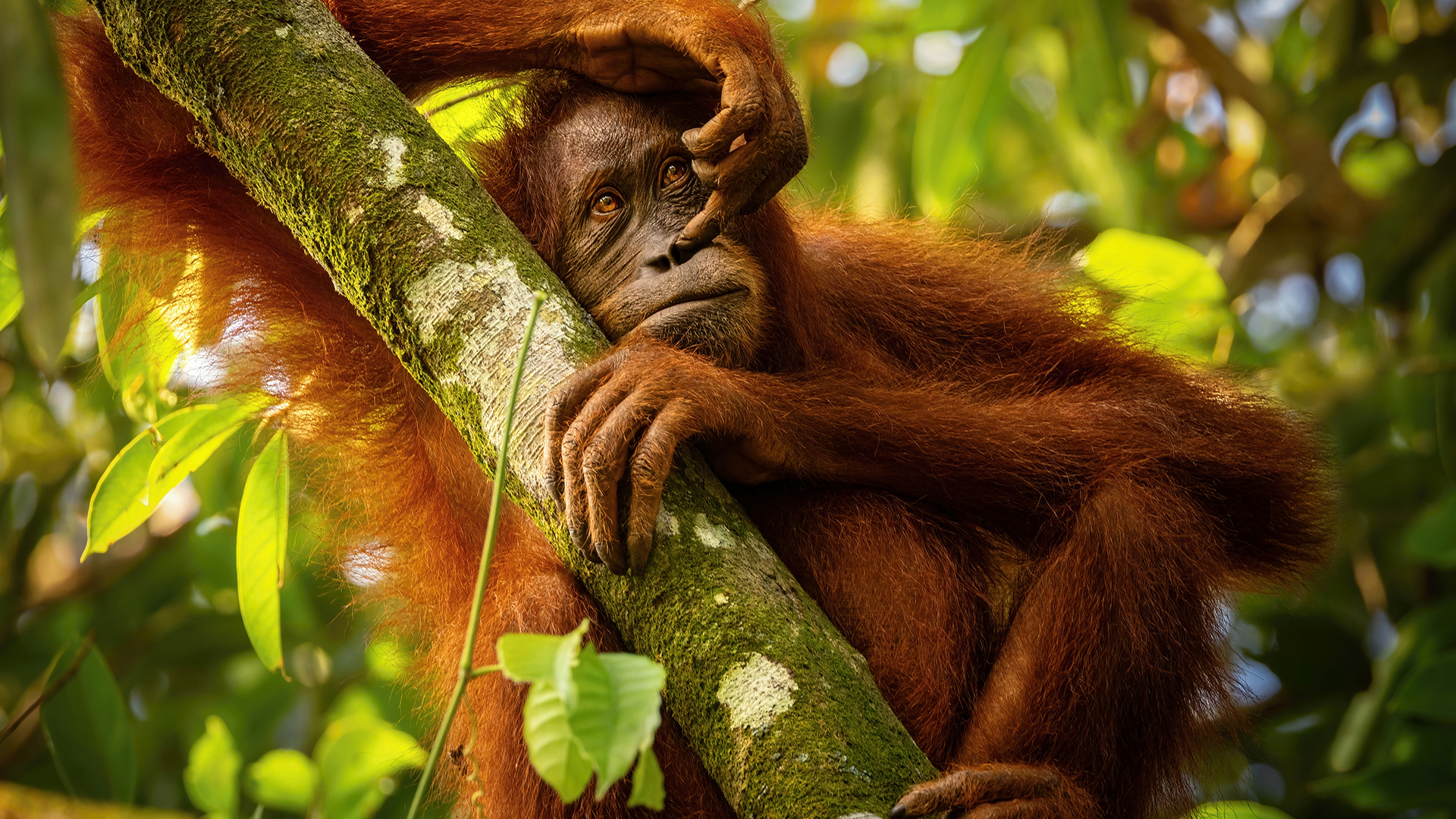The orangutan, one of humanity’s closest relatives, faces a heartbreaking battle for survival. These gentle, intelligent primates – found only in the rainforests of Borneo and Sumatra – are teetering on the edge of extinction.
Habitat destruction, poaching, and the spread of palm oil plantations have all contributed to their devastating population decline. Once thriving in the lush canopies of Southeast Asia, their numbers have plummeted so drastically that they are now one of the most critically endangered animals on Earth!
But orangutans are more than just symbols of wildlife loss. They are vital components of their ecosystems, helping forests regenerate while displaying behaviors and social bonds remarkably similar to our own.
Understanding the unique qualities of these primates, including the threats they face, can inspire action to ensure they don’t vanish forever.
In this article, I’ll explore critical facts about orangutans in an attempt to shed light on their importance, the dangers they face, and how we can all play a role in protecting them for generations to come. Better give it a read, it’s important!
1. One Of The Rarest Primates On The Planet
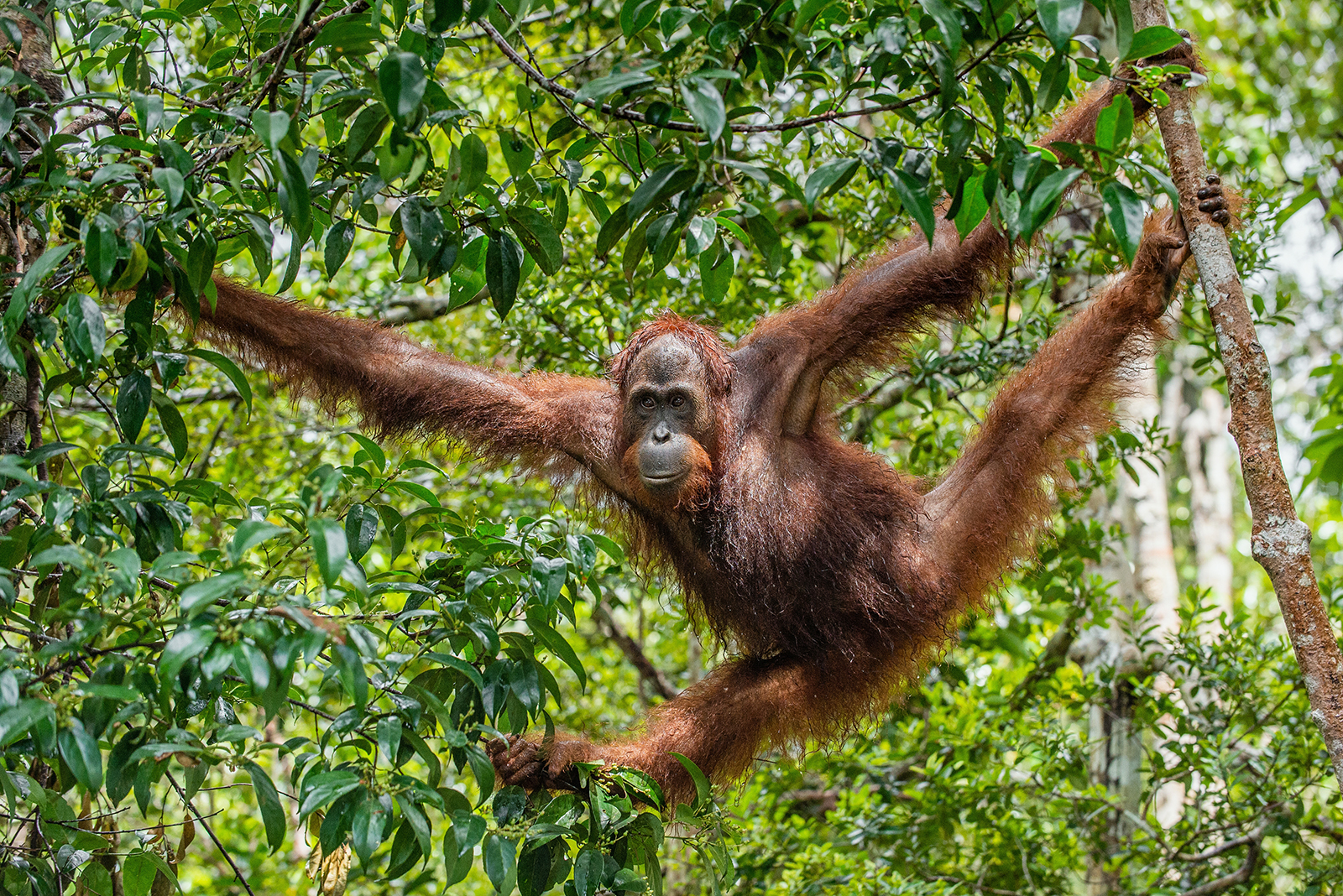
Orangutans are among the most critically endangered primates in the world. They are facing an alarming decline that threatens their very existence! And we should care.
The Sumatran orangutan, for example, is on the brink of extinction, with fewer than 14,000 individuals left in the wild. The Bornean orangutan, though slightly more numerous, has also suffered drastic population losses! The number is only around 100,000 now.
Yet, most critically, the Tapanuli orangutan, which was discovered as a distinct species only in 2017, has fewer than 800 individuals left! Alarm!
These striking figures reflect a heartbreaking reality. Massive deforestation, particularly for palm oil plantations, has devastated their rainforest homes. Illegal logging and poaching continue to compound the crisis, too. Absolutely unfortunate!
Without stronger protections, orangutan numbers could decline even further, pushing these gentle primates closer to the edge of extinction. Let’s not let this happen!
2. A Fascinating Social Structure
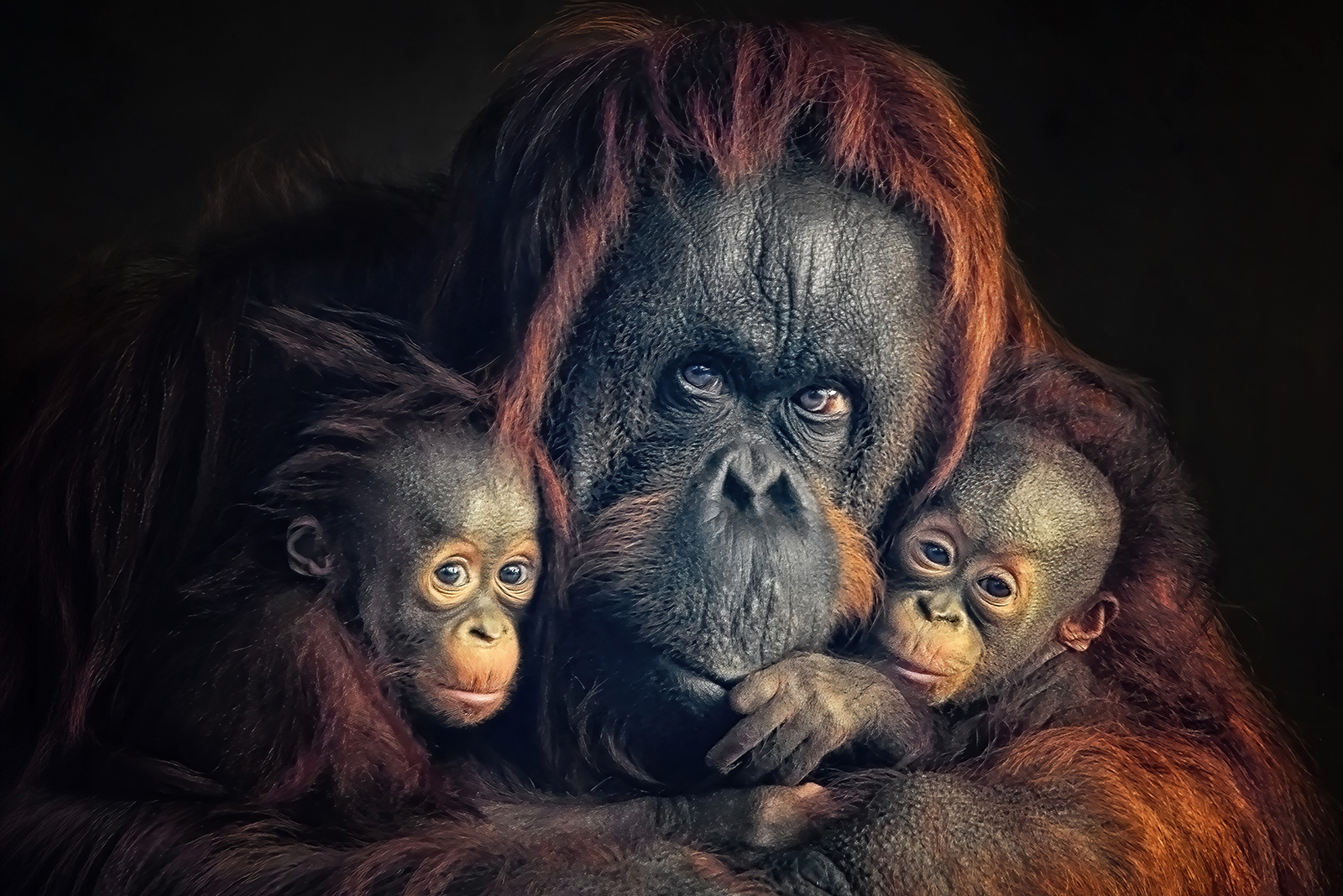
Orangutans have a social system quite different from other primates! Interestingly, they are more into independence rather than large groups.
Adult males are typically solitary, roaming vast territories, while females stay with their offspring, forming some of the most profound mother-child bonds you could possibly imagine!
Baby orangutans remain dependent on their mothers for an exceptionally long period – up to eight years. Compared to other animals, this is quite long! During this time, they learn vital survival skills, from climbing high into the canopy to identifying safe food sources and even building complex tree nests for sleeping.
This extended care period helps young orangutans develop the skills they need for survival in their challenging rainforest habitat. However, the destruction of their forest homes disrupts this delicate dynamic!
Families are getting fragmented as we speak, making it increasingly difficult for young orangutans to learn life-sustaining behaviors! This just further adds to the problem.
3. A Master Of Camouflage
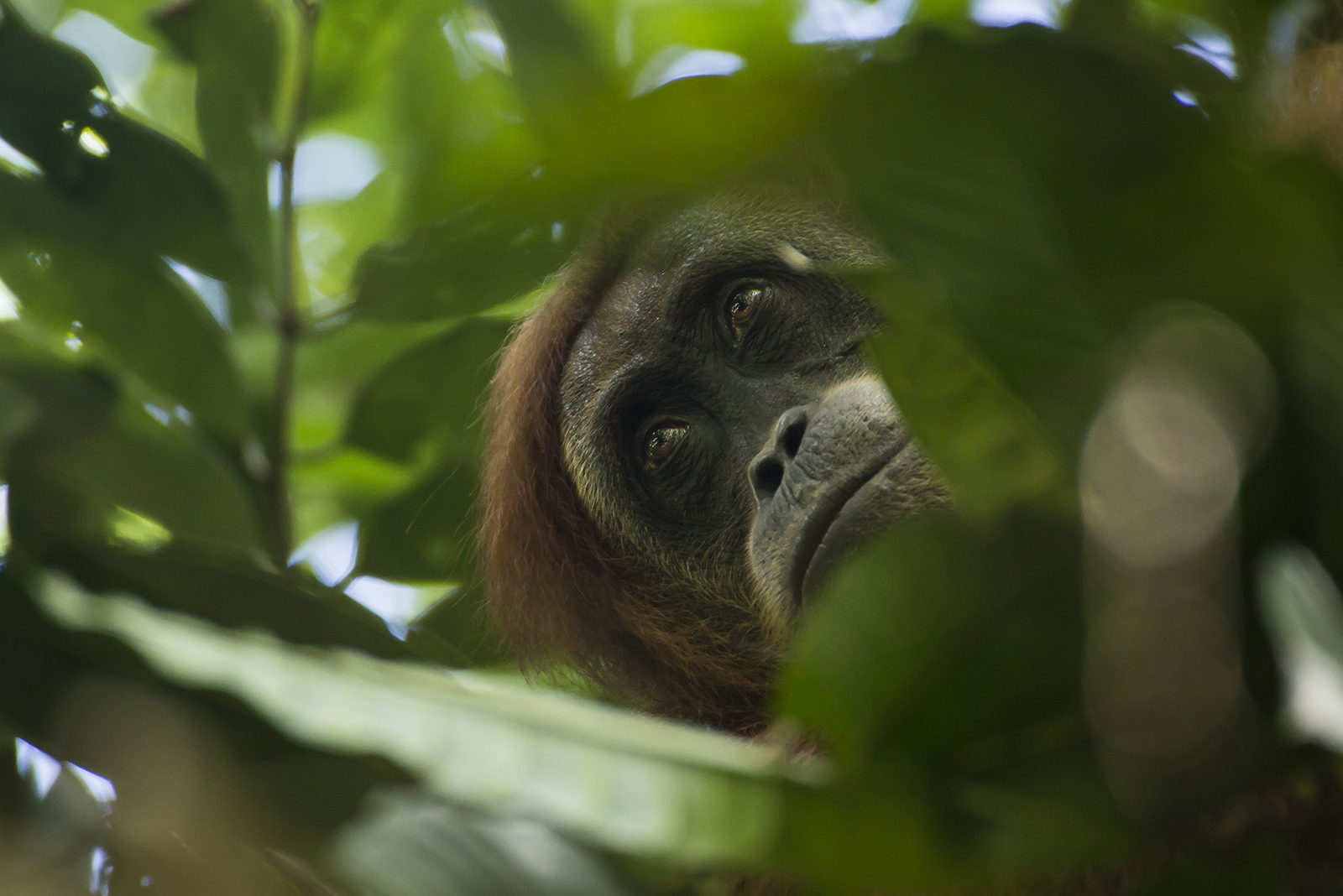
Though they might not seem like masters of disguise at first glance, orangutans have evolved an impressive ability to blend into their rainforest environments.
Their reddish-orange fur surprisingly merges with the warm, filtered light of the dense canopy, helping them stay hidden from predators and, unfortunately, poachers.
Their quiet, solitary nature also keeps them out of sight, as they often travel alone or in small family groups, making minimal noise as they move carefully among the trees. However, this same natural stealth makes them difficult for conservationists to track and protect.
Worse yet, it allows illegal loggers and poachers to operate in their habitats with minimal detection. Their very survival depends on keeping these ancient rainforests intact! Sadly, even their natural ability to hide can’t protect them from habitat destruction.
4. Key Role In Their Ecosystem
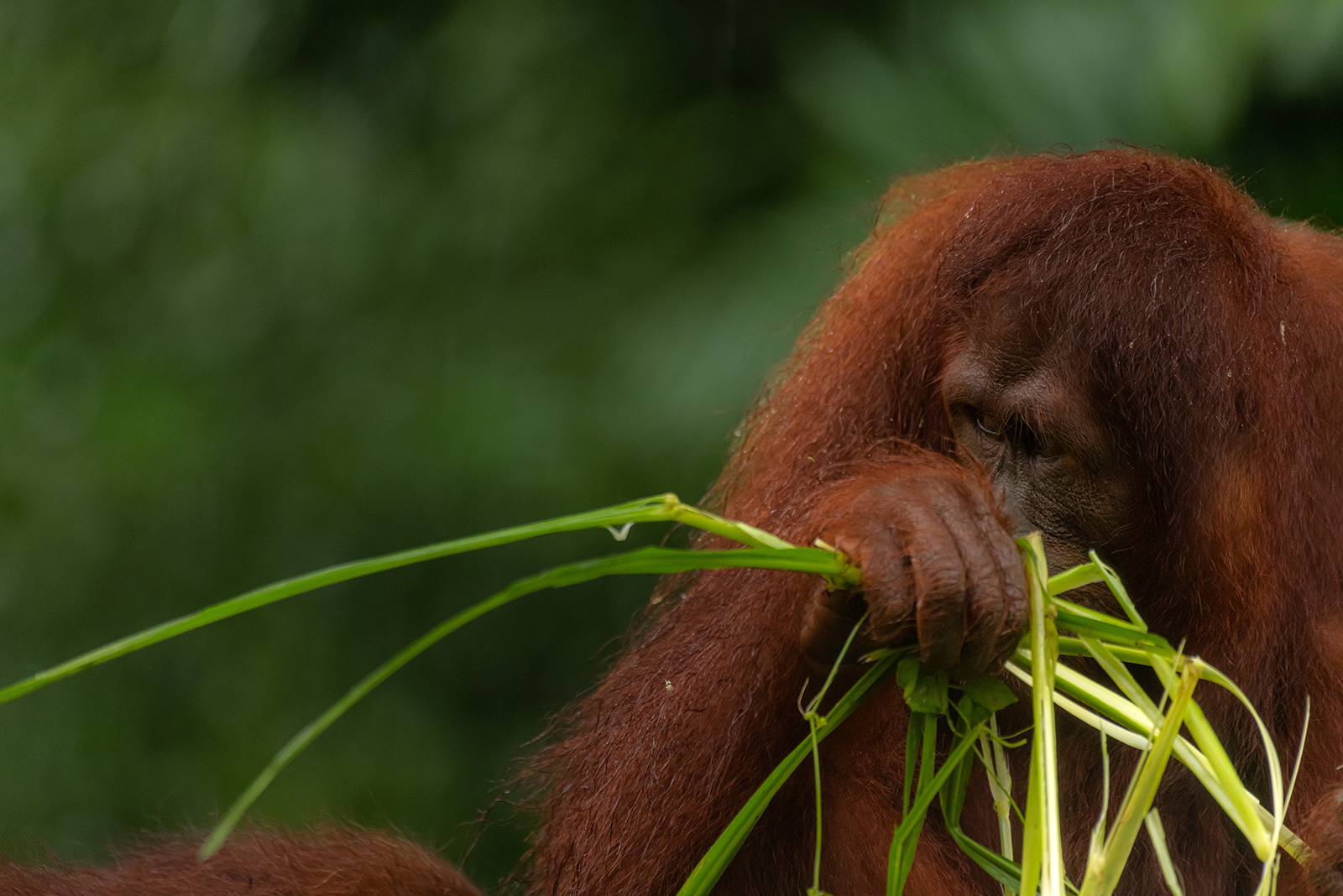
Orangutans are far more essential to the health and balance of their rainforest ecosystems than we may have believed before. They’re sometimes called the “gardeners of the forest,” because they have a crucial role as seed dispersers.
As they travel through the treetops eating fruits, they scatter seeds far and wide, helping regenerate plant life throughout the rainforest. This natural process maintains biodiversity and supports countless other species that rely on the same habitat.
When orangutans disappear, the balance they maintain begins to unravel. Certain plants struggle to spread, which in turn reduces food sources for other wildlife, and diminishes the overall health of the ecosystem. To put it short, it would be devastating.
Protecting orangutans means protecting the rainforest itself – a critical habitat not only for wildlife but for the health of the planet as a whole!
5. A Diet That Supports Forest Growth
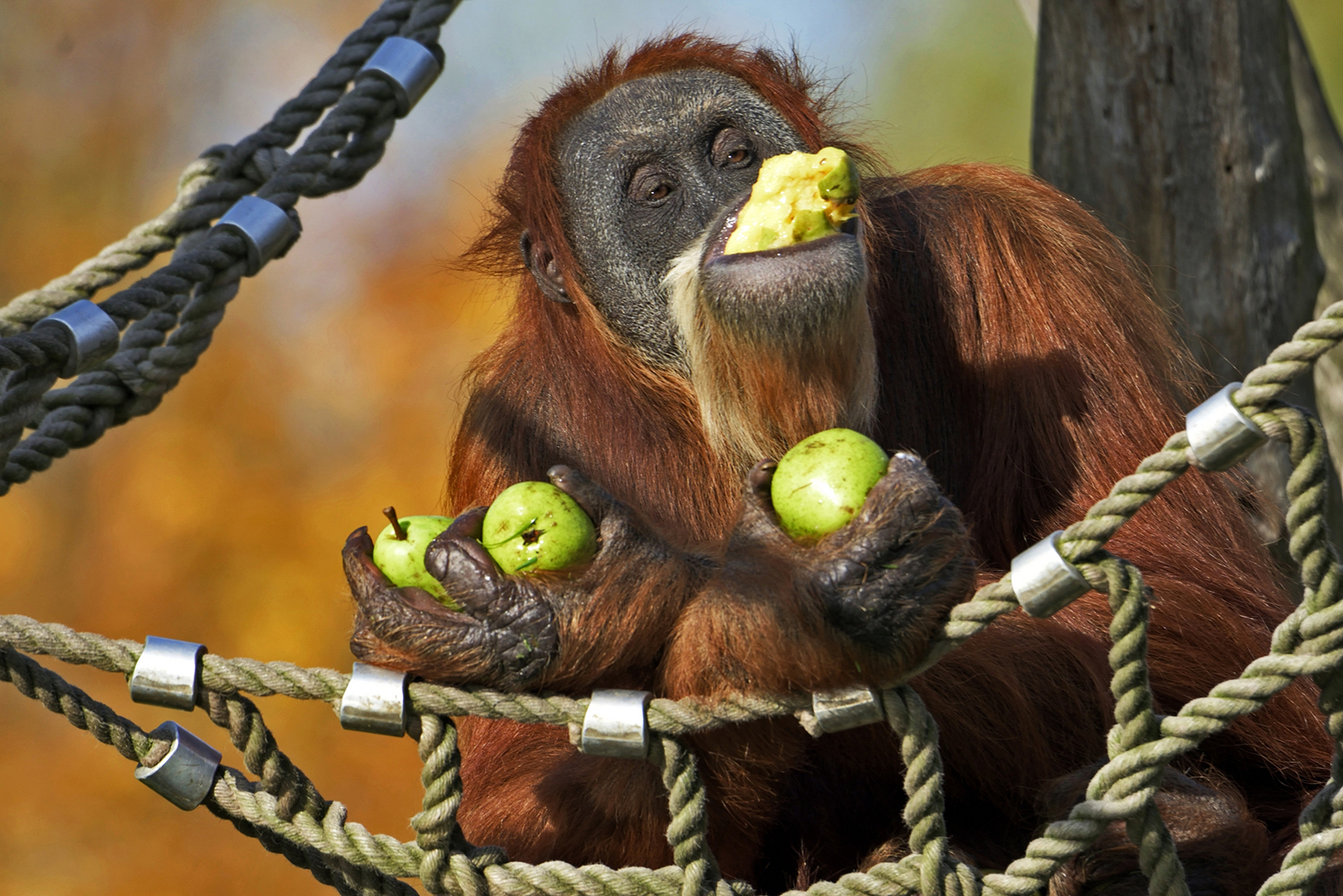
Orangutans are primarily frugivores, with their diet consisting mostly of fruits such as figs, durians, and mangosteens.
However, their diet extends to leaves, bark, seeds, and occasionally insects when food is scarce. This diverse diet keeps them healthy but also plays a vital ecological role.
By consuming fruit and later dispersing seeds throughout the forest in their waste, orangutans act as natural reforesters. Without them, many plant species could struggle to regenerate, leading to reduced biodiversity and forest health.
6. Mounting Threats To Their Survival
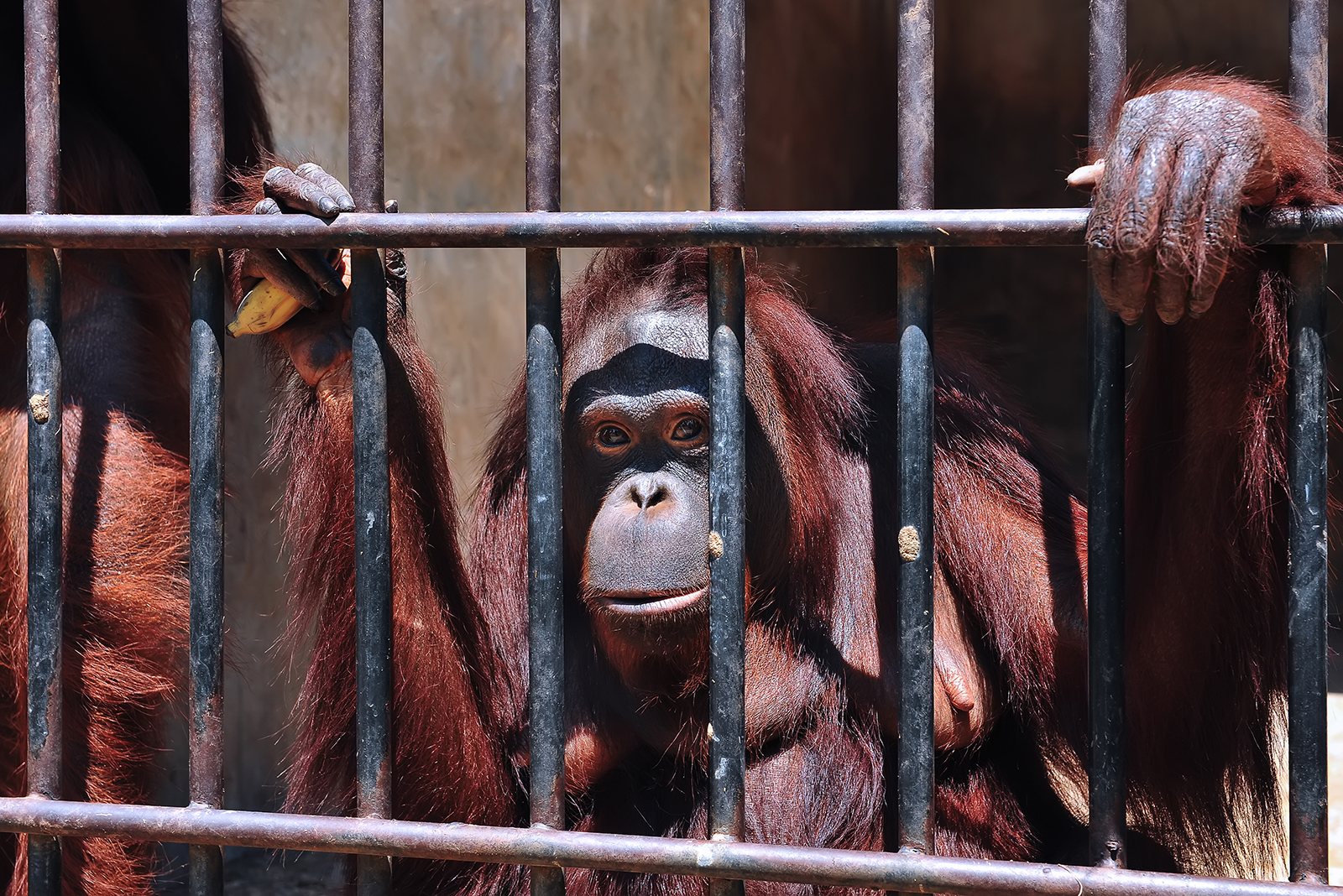
Despite their importance, orangutans face an overwhelming number of threats driven almost entirely by human activity. The largest threat is habitat loss due to deforestation, primarily driven by the expansion of palm oil plantations.
This is the way it works: essentially, entire rainforests are cleared to make way for these crops, leaving orangutans without food, shelter, or safe spaces to raise their young.
Beyond deforestation and palm oil plantations, illegal hunting is also a problem. It poses a serious danger! Orangutans are often hunted for bushmeat, and infants are captured and sold in the illegal pet trade after their mothers are brutally disposed of! Horrible!
Fragmentation of their habitat isolates populations even more, making it harder for individuals to find mates and maintain genetic diversity. This is also essential for the species’ survival!
7. Conservation Efforts Are Underway
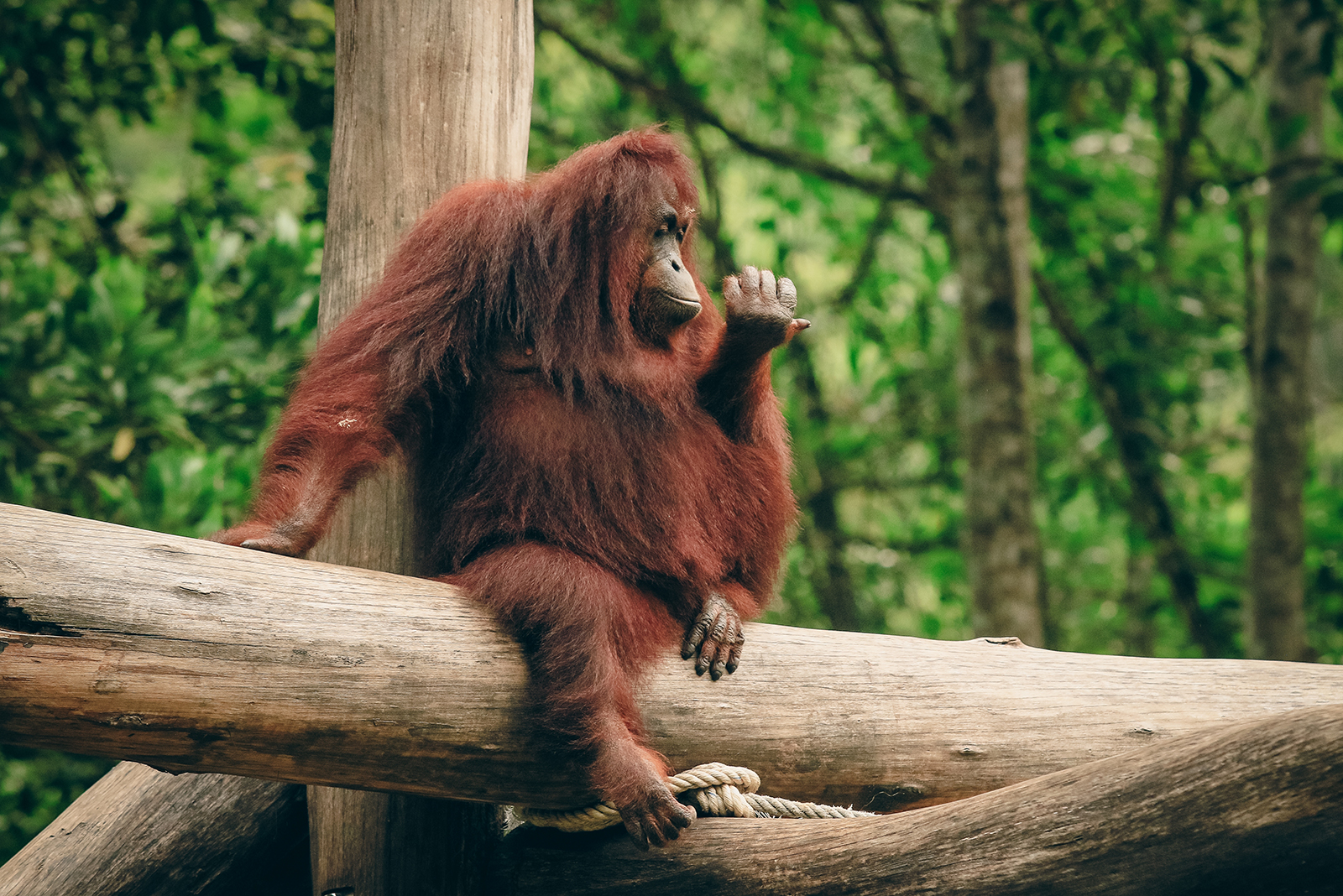
Though the challenges facing orangutans are severe, conservation efforts around the world are working to turn the tide. Wildlife reserves in Borneo and Sumatra have been established to provide protected spaces where orangutans can live safely without the immediate threats of logging and poaching. Thank goodness!
Rehabilitation centers, such as the famous Sepilok Orangutan Rehabilitation Centre in Malaysia, care for orphaned and injured orangutans. They’re preparing them for release back into the wild once they’ve learned essential survival skills.
Anti-poaching patrols and reforestation projects are also being expanded, though continued funding and public support remain critical. And this is the perfect segue for the last entry on this list.
8. You Can Make A Difference
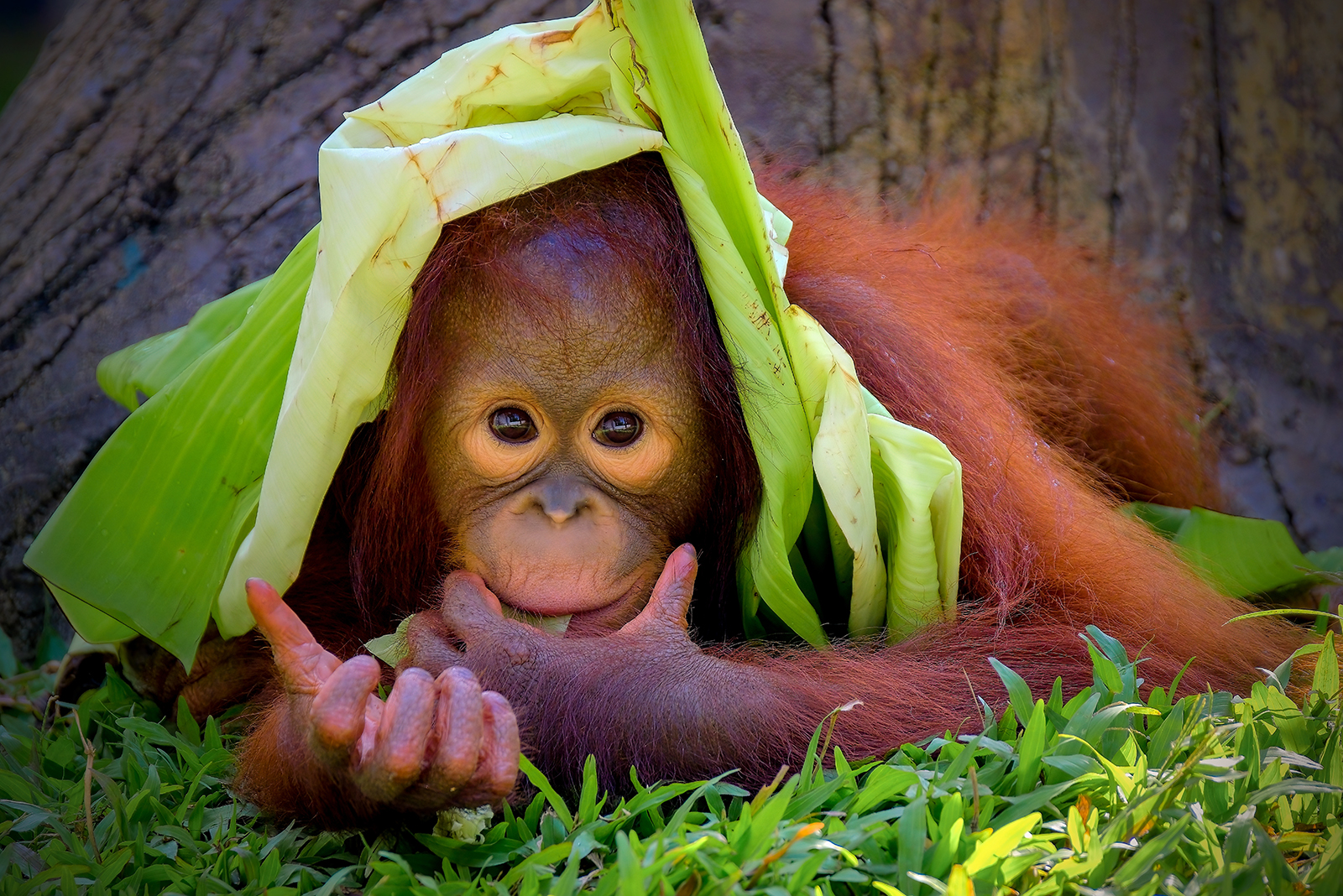
While the plight of the orangutan might seem far removed from our daily lives, there are direct ways you can help protect this species from extinction.
Supporting ethical wildlife charities focused on orangutan conservation can make a significant difference. Additionally, being mindful of the products you purchase, especially by choosing sustainably sourced palm oil, can reduce the demand that drives deforestation.
Spreading awareness by sharing facts about orangutans and their struggles can inspire more people to join the fight for their protection. Every small action matters when it comes to ensuring these incredible primates have a future in the wild.

